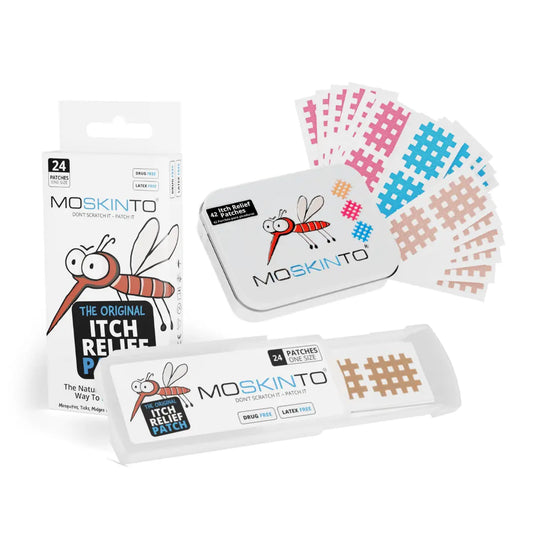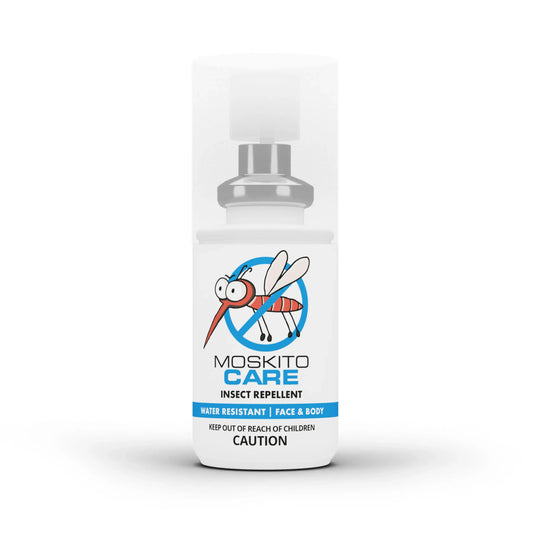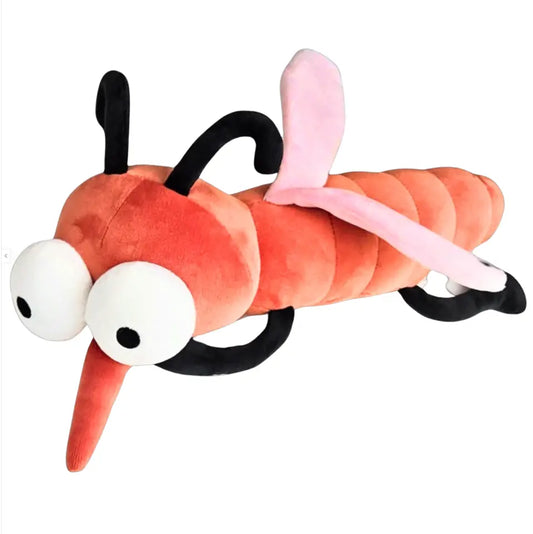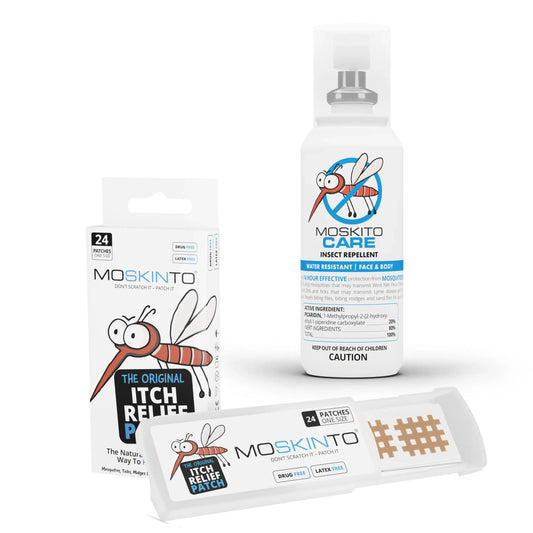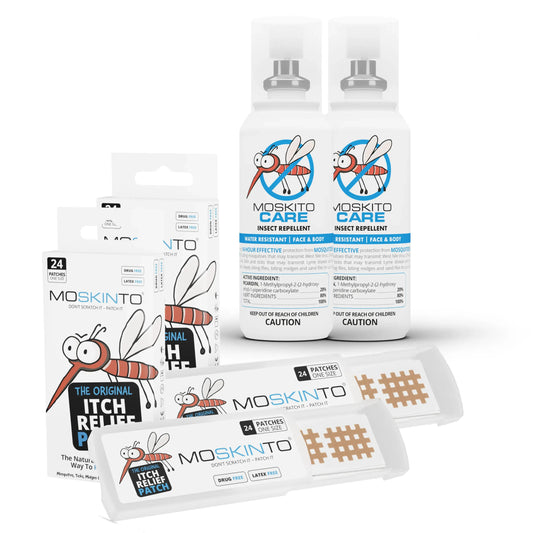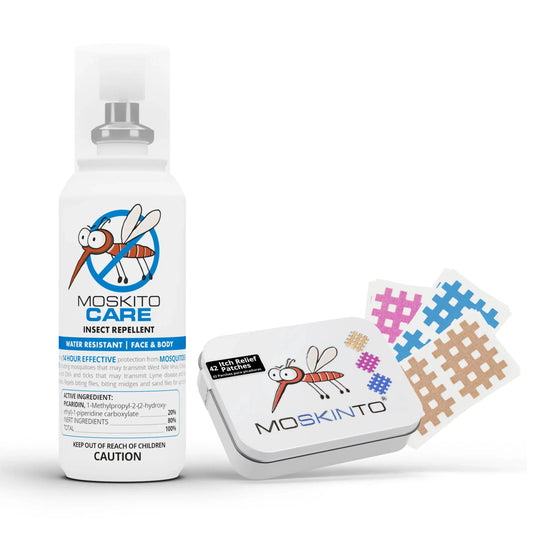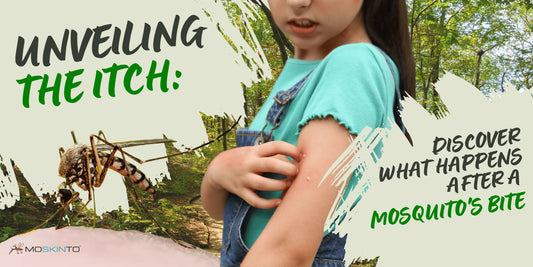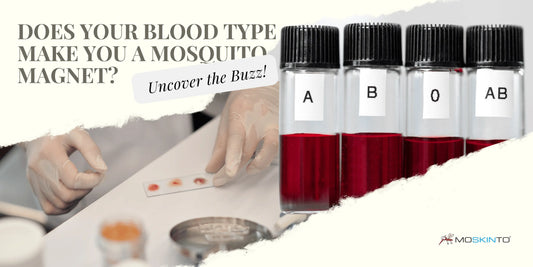The Allure of Humans: Decoding Why Mosquitoes Find Us Irresistible
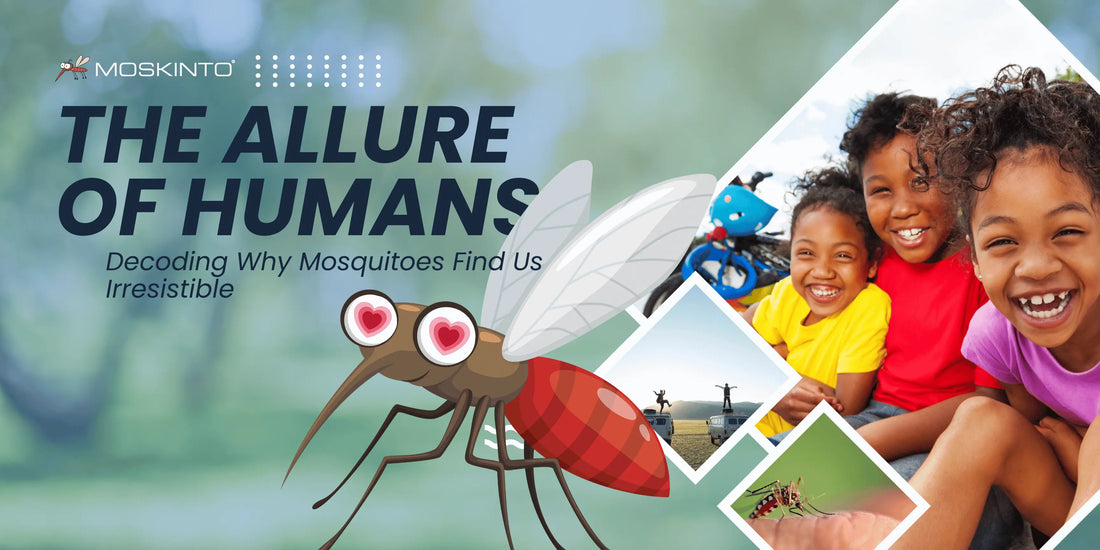
The Allure of Humans: Decoding Why Mosquitoes Find Us Irresistible
Welcome to a fascinating journey into the world of one of nature's most notorious insects - the mosquito. Ever wonder why these buzzing pests seem particularly fond of humans? Our exploration delves deep into mosquito biology and behavior to reveal why certain species are more drawn to us than others. Not all mosquitoes are created equal in their quest for blood - while many varieties exist, we'll concentrate on those species that specifically target humans.
Beyond the nuisance of itchy bites, there's a complex biological imperative at play. It's the female mosquitoes that are on the bloodthirsty prowl, driven by an instinctual need to harvest blood which is essential in producing and nourishing their eggs. The stakes are high in this biological game, and researchers are the detectives on the case. They tirelessly work to understand the intricate cues that lead mosquitoes to find us so attractive-knowledge that can lead to better protection and management strategies. Join us as we unravel the mystery behind why mosquitoes are attracted to humans and reveal the science behind our unfortunate appeal.
The Lure of Carbon Dioxide and Body Heat
Have you ever wondered how mosquitoes seem to always find you, even in the dark? It's not just luck, but an efficient hunting strategy that zeroes in on two key indicators that you're nearby: carbon dioxide and body heat.
Carbon Dioxide: Mosquitoes' Guiding Beacon
Carbon dioxide (CO2) is the primary signal that mosquitoes hone in on when seeking out a blood meal. Each time we exhale, we release CO2 into the air, creating an invisible trail that mosquitoes can detect. This potent chemical cue helps mosquitoes to determine not only the presence of a potential host but also the direction to follow to find them.
Detection Range: Why Distance Matters
Mosquitoes can sense CO2 emissions from impressive distances. Research suggests these adept insects can detect carbon dioxide from up to 50 meters away, though they are most effective at closing in from around 10 to 30 meters. This range of detection means that even the mere act of breathing can make us a target when mosquitoes are on the hunt.
The Role of Body Heat in Attraction
Once mosquitoes get closer, body heat becomes the next significant indicator of human presence. Warm-blooded creatures, like us, emit heat, which serves as a thermal signpost that mosquitoes can detect. This signal is particularly potent when there's a contrast between the body temperature of the human host and the surrounding air temperature.
Thermal Cues: Homing in on the Heat
The sophistication of a mosquito's detection capability does not end with CO2. They further utilize the body heat radiating from our skin to pinpoint the exact location for feeding. These thermal cues guide them to areas where blood flow is close to the skin, such as the wrists or neck, making it easier for them to get their meal.
Why Some People Are "Hotter" Targets
Not everyone is equally attractive to these pesky insects. Individuals differ in their body heat emissions due to various factors including, but not limited to, metabolism, physical activity, and physiological differences. It's these subtle variations that can make one person more prone to mosquito bites than another.
- Metabolic rates can influence body temperature and, in turn, attract or repel mosquitoes.
- Engaging in vigorous physical activity increases body heat and CO2 output, potentially making you a moving beacon for these insects.
- Pregnancy, in particular, changes a woman's body temperature and CO2 production, often leading to an increased mosquito attraction.
Understanding these factors can help explain why you might feel like a mosquito magnet while your friend remains relatively unbothered during an evening outdoors.
The Spectrum of Blood: Blood Type and Genetic Markers
Have you ever wondered why some people seem to be constantly surrounded by buzzing mosquitoes while others are left in peace? The answer might be flowing through your veins. Recent research highlights the fascinating role of blood type and genetic markers in the attraction mosquitoes feel towards humans.
Why Your Blood Type Matters to Mosquitoes
While all blood may seem the same, mosquitoes have a different opinion. Scientific studies suggest certain blood types might as well be a gourmet feast for these pesky insects. Blood type O is consistently found to be more attractive to mosquitoes, making individuals with this blood type more susceptible to bites. Conversely, those with Type A blood luck out with fewer bites, and Type B falls somewhere in between.
Differences in Mosquito Attraction
But it's not just about being type O or type A. The level of attraction varies, with mosquitoes showing a relatively higher preference for certain blood types. Still, this is not the sole factor in the mosquito's complex menu of preferences. The compelling mix of genetics, blood type, and secreted chemicals creates a perfect storm, serving as an irresistible beacon for mosquitoes.
Genetic Markers and Mosquito Preference
The plot thickens when we dive into the microscopic world of genetic markers. These markers are like tiny signals that can increase your visibility to mosquitoes. They can influence the amount of certain chemicals on your skin's surface - substances that mosquitoes find particularly appealing. If your genetic stars align in a certain way, you might just be a preferred target for these bloodsuckers.
Are You Genetically Predisposed to Mosquito Bites?
It seems like some of us are marked from the start. Studies indicate that genetics play a significant role in making someone more attractive to mosquitoes. If you're frequently sporting itchy welts from bites, your DNA might be partially to blame. Genetic factors can dictate your body's chemistry, including the amount and types of substances you emit through your skin, making some individuals genetically predisposed to being mosquito magnets.
- Considerations: Protection methods may vary in effectiveness due to an individual's unique chemical signature.
- Advice: Understanding your blood type and genetic makeup can help in tailoring prevention strategies.
- Takeaway: Your blood and genes may play a more critical role in mosquito attraction than previously thought.
Dress to Repel: The Power of Dark Clothing
When considering why mosquitoes are attracted to humans, it's not just about the scents and chemicals our bodies emit. Believe it or not, our fashion choices can also play a significant role in our appeal to these pesky insects. Let's unravel the mystery behind the color of our attire and its unexpected consequence in attracting mosquitoes.
Examining the Attraction of Mosquitoes to Certain Colors
It's a little-known fact that mosquitoes have preferences when it comes to the colors they are drawn to. Research suggests that these insects are visually attracted to certain hues, which can lead to a higher rate of bites for individuals donning those specific colors.
Why Dark Clothing Might Be More Attractive to Mosquitoes
One might think that brighter colors would stand out more to mosquitoes, but it is actually the darker clothing that tends to lure them in. It's believed that dark clothes, such as black, dark blue, or red, are more appealing to mosquitoes for a couple of reasons:
- Heat absorption: Dark colors absorb more heat than light colors, which can make individuals wearing dark clothes warmer targets for mosquitoes.
- Stand out against the horizon: Mosquitoes are adept at navigating their environment, and dark clothing provides a stark contrast against the horizon, especially during dusk when mosquitoes are most active.
So next time you're choosing your outfit for a summer evening or venturing into areas known for mosquito populations, consider opting for lighter-colored clothing to lower your chances of being bitten.
Environmental Fragrances and Repellents: What Attracts and What Deters Mosquitoes?
Mosquitoes have a keen sense of smell, which leads them to be influenced heavily by the fragrances in their environment. This sensitivity can determine how they interact with humans, either drawing them nearer or repelling them away.
The Allure of Perfumes and Scented Lotions
It might surprise you to know that the same scents we use to make ourselves smell good, like perfumes, scented lotions, and other personal care products, can also be like an open invitation to mosquitoes. These products often contain floral or fruity compounds that are quite attractive to these pesky insects.
Natural and Chemical Repellents: How They Work
Fortunately, there is a wide range of repellents to help us keep mosquitoes at bay. These can be broadly categorized into natural and chemical repellents:
- Natural repellents often harness the scents of essential oils from plants that mosquitoes find unattractive, such as citronella, eucalyptus, and lavender.
- Chemical repellents, like DEET, picaridin, and IR3535, are scientifically proven to provide effective protection against mosquito bites by disrupting their scent receptors.
Each type of repellent has its advantages, and the choice between them can depend on various factors such as the duration of outdoor activity, mosquito population density, and personal health considerations.
Fragrances and Chemicals That Deter Mosquitoes
Did you know that certain fragrances and chemicals not only repel mosquitoes but can actively deter them from entering an area? Substances like DEET are designed to confuse a mosquito's sense of smell, thus reducing its ability to locate humans. Meanwhile, natural fragrances like peppermint and lemongrass are less aggressive but can still provide a level of protection, especially in lower-risk areas. However, DEET can also be dangerous if used consistently. Here in Moskinto, we created a repellent with 20% picaridin which can be used repeatedly to make sure that times outdoors is comfortable for you and your family.
In conclusion, understanding which environmental fragrances and repellents are effective can be a key strategy in your arsenal against mosquitoes. Strike a balance between attractiveness and protection by choosing products wisely, to keep yourself just a little less appealing to our persistent insect companions.
Prevention and Protection: Health Consequences and Food for Thought
Why are mosquitoes attracted to humans? While the question might seem simple, the health implications of this attraction are complex and significant. Good prevention strategies can mean the difference between a pleasant summer evening and a series of unwelcome health issues.
Understanding the Broader Implications
Mosquito bites are not just annoying; they can be the starting point for a variety of health consequences. Certain species of mosquitoes can transmit diseases such as malaria, dengue fever, Zika virus, and West Nile virus. These diseases can have severe effects on populations, illustrating the importance of mosquito bite prevention on a global health scale.
Mosquitoes and Disease Transmission: A Public Health Concern
The connection between mosquito bites and disease transmission cannot be overstated. For many regions around the world, mosquitoes are more than just a nuisance; they're a public health threat. This necessitates public health strategies at both the local and global levels to reduce the prevalence of mosquito-borne illnesses.
Strategies for Minimizing Mosquito Attraction
To minimize the attraction mosquitoes have to humans, individuals and communities need to implement effective strategies. These can include the use of proper repellents, reducing standing water where mosquitoes breed, and using mosquito nets and screens for protection.
Personal Behavior Changes and Mosquito Control Measures
On a personal level, simple behavior changes can also make a big difference. Using unscented personal care products, wearing light-colored clothing, and avoiding peak mosquito activity times can help reduce your chances of being bitten. On a larger scale, mosquito control measures like community fogging and habitat destruction can dramatically decrease the mosquito population and thus, the risk of bites and disease transmission.
- Avoid areas with high mosquito activity, especially during peak times like dusk and dawn.
- Use Environmental Protection Agency (EPA)-registered insect repellents when outdoors.
- Maintain window and door screens to keep mosquitoes out of the home.
- Clear out standing water in yards and neighborhoods to eliminate mosquito breeding sites.
- Support public health efforts to control and reduce the risk of mosquito-borne diseases.
Remember, protecting yourself from mosquito bites is not just about avoiding an itch; it's about safeguarding your health. Consider these points 'food for thought' the next time you're planning your outdoor adventures or even just enjoying a quiet moment on your patio. Take control and don't let mosquitoes put your health at risk.

